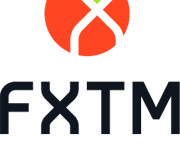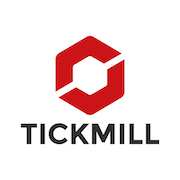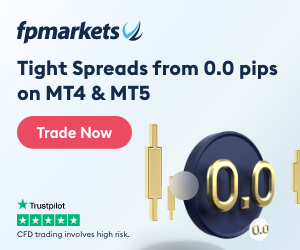For over a decade, FxScouts has been reviewing forex brokers and providing in-depth analyses. Our extensive research and unique testing methodology ensures that all broker reviews are accurate and fair, with hundreds of thousands of data points generated annually. Since 2012, we’ve tested over 180 brokers across global and Australian markets. Our team of professionals are frequently cited in global and regional media, shaping market conversations and trends.
-
MetaTrader 4 Brokers
The top MT4 brokers in AU
-
MetaTrader 5 Brokers
The best MT5 brokers in AU
-
TradingView Brokers
The best TradingView brokers
-
cTrader Brokers
The top cTrader brokers in AU
-
Forex Trading Apps
Trade on the go from your phone
-
Copytrading Brokers
Copy professional traders
-
All Trading Platforms
Find a platform that works for you
75-90% of retail traders lose money trading Forex and CFDs. You should consider whether you understand how CFDs and leveraged trading work and if you can afford the high risk of losing your money. We may receive compensation when you click on links to products we review. Please read our advertising disclosure. By using this website you agree to our Terms of Service.
- FP Markets - Best MetaTrader Execution
- Pepperstone - Best ECN CFD Broker
- markets.com - Lowest Trading Fees
- XM - Best Education
- FBS - $50 Minimum Deposit, ASIC-regulated
- FXTM - Micro Account and Excellent Education
- Tickmill - CySEC-Regulated Broker with the Lowest Trading Costs
Best CySEC Regulated Brokers 2024
Broker | Broker Score | Official Site | CySEC License | Min. Deposit | Max. Leverage | Beginner Friendly | EUR/USD - Standard Spread | Cost of Trading | EUR/USD - Raw Spread | Total CFDs | Currency Pairs | Platforms | Compare |
|---|---|---|---|---|---|---|---|---|---|---|---|---|---|
 | 4.40 /5 Read Review | Visit Broker > 79% of retail CFD accounts lose money | 371/18 | AUD 100 | 30:1 | Excellent | 0.10 pips | USD 7 | 0.10 pips | 10162 | 70 | MT4, MT5, cTrader, IRESS | |
 | 4.61 /5 Read Review | Visit Broker > 89%74- of retail CFD accounts lose money | 388/20 | AUD 100 | 30:1 | Excellent | 1.00 pips | USD 10 | 0.17 pips | 1275 | 100 | MT4, MT5, cTrader, TradingView | |
4.68 /5 Read Review | Visit Broker > 70.3% of retail CFD accounts lose money | 092/08 | AUD 100 | 30:1 | Excellent | 0.70 pips | USD 7 | 0.60 pips | 1009 | 56 | MT4, MT5, markets.com | ||
 | 4.45 /5 Read Review | Visit Broker > 75.33% of retail CFD accounts lose money | 120/10 | AUD 5 | 30:1 | Excellent | 0.60 pips | USD 6 | 0.60 pips | 1554 | 57 | MT4, MT5 | |
 | 4.33 /5 Read Review | Visit Broker > 76% of retail CFD accounts lose money | 331/17 | AUD 5 | 30:1 | Excellent | 0.70 pips | USD 7 | 0 pips | 254 | 37 | MT4, MT5 | |
 | 4.27 /5 Read Review | Visit Broker > 81% of retail CFD accounts lose money | 185/12 | AUD 10 | 2000:1 | Excellent | 1.50 pips | USD 15 | 0.00 pips | 1803 | 62 | MT4, MT5 | |
 | 4.58 /5 Read Review | Visit Broker > 71% of retail CFD accounts lose money | 278/15 | USD 100 | 30:1 | Excellent | 0.00 pips | USD 6 | 0.10 pips | 209 | 62 | MT4, MT5 |
How to compare CySEC regulated brokers
CySEC is a tier 2 financial regulatory agency from Europe. They are a modern and well-funded organization and often the first to make regulatory changes needed to protect would-be traders and maintain fairness in the CFD industry. Generally speaking, CySEC-regulated brokers can be considered safe. Still, some few CySEC-regulated brokers have a history of controversy, and the regulator has only taken limited action on behalf of clients and partners. But it is essential to look at the detail of each broker to find out what differentiates them from each other. When comparing CySEC regulated brokers consider:
Regulation: While your broker is CySEC regulated, your trading account may not be. It is increasingly common for CySEC regulated brokers to onboard clients onto a different license where trading conditions, like leverage, can be increased without the CySEC oversight. While this is not fundamentally bad, the trader should know their trading account is regulated and that CySEC will not enforce their regulations in overseas territories. If you value the regulatory oversight of CySEC, don’t trade that for adjusted trading conditions.
Platform choice: Traders have a wide range of industry platforms to choose from, each with pros and cons. When comparing brokers, always consider the platform options, as unique features or a wide variety of platforms could change your trading experience.
Trading costs: Every broker will charge for their services, but each will have different pricing models and costs. While ECN brokers will charge a smaller spread combined with a commission based on volume, market maker brokers will charge a wider spread. We compare brokers by looking at what 1 lot of EURUSD costs to trade and would encourage traders to do the same in comparing costs.
MetaTrader 4 is still the industry standard, but many brokers offer MetaTrader 5 and their proprietary platforms. ECN/STP brokers will often support cTrader as it is built specifically for market execution and only allows for minimal broker interference.
Minimum Deposit: The minimum deposit could change by account type, with higher minimum deposits often linked to better conditions. Always consider the minimum deposit specific to the account type you may open.
Deposit and Withdrawal Methods: Most brokers accept credit cards and bank transfer payment, and many accept online payments through Skrill and Neteller, and some will also accept Bitcoin. Always check the withdrawal fees before making a deposit.
FP Markets – Best MetaTrader Execution
FP Markets is a leading CySEC-regulated CFD broker offering trading on both the MT4, MT5, and IRESS trading platforms. In addition to providing super-fast execution speeds over a dedicated fibre-optic line, it offers versions of the platforms for alternate operating systems, including Mac OS and WebTrader. Traders also have access to institutional-grade liquidity from multiple execution venues, with no price manipulation, no dealing desk intervention, and no requotes or rejections.
Trading conditions at FP Markets are generally excellent, with tighter than average spreads on two live accounts. The commission-free Standard Account offers spreads starting at 1.0 pips on the EUR/USD and spreads as tight as 0 pips (EUR/USD) on its Raw Account in exchange for a commission of 6 USD (round turn) per lot.
Pepperstone – Best ECN CFD Broker
Pepperstone is a leading CySEC regulated ECN/STP broker offering trading on over 180 assets, including Forex, indices, shares, commodities, cryptocurrencies, and currency indices. Pepperstone offers full support for the MT4, MT5, and cTrader platforms which provides high-speed execution and low latency trading.
Pepperstone’s trading conditions are among the most competitive in the industry. /with two live accounts on offer, a Standard commission-free account with spreads starting at1.00 pips on the EUR/USD, and a Razor Account with spreads that average at 0.10 pips in exchange for a reasonable commission of 7 USD (round turn) per trade. Pepperstone also provides award-winning customer service, available 24/7, and an excellent educational repository, making it a good choice for beginner traders.
Markets.com – Low Trading Fees
Markets.com, a leading Forex broker, operates under the strict regulatory oversight of the Cyprus Securities and Exchange Commission (CySEC), ensuring transparency and accountability in its operations. The company’s dedication to maintaining the highest standards of regulatory compliance has been evident since it first received its CySEC license in 2008.
In terms of cost-effectiveness, Markets.com distinguishes itself with its low-cost trading account. Market.com’s Basic Account tier has a minimum deposit requirement of 100 AUD, making it accessible to most traders, while its highest tier account (the Platinum tier) is accessible to traders with a 50,000 USD deposit. Spreads are much tighter than other brokers across all account tiers, with spreads starting at 0.6 pips (EUR/USD) on its lowest account tier.
XM – Best Education
XM is a CySEC-regulated market maker broker with an excellent repository of educational and market analysis materials. XM’s educational content focuses on instruction in video format, which is aimed at traders of all experience levels – beginner, intermediate, and advanced. XM also provides daily interactive instruction via webinars that are available daily from 08.30 – 16.00 GMT, Monday to Friday. Topics range from the basics of Forex trading, to learning how to use multiple time frame techniques with real-time simulated trading conditions. All webinars are hosted by industry expert analysts.
XM also offers competitive trading conditions on four live accounts. Minimum deposits start at 5 USD on its entry-level account with a spread of 1.6 pips on the EUR/USD, which is wider than other market makers. Trading costs improve on its Zero Account, with spreads as tight as 0 pips in exchange for a commission of 7 USD round turn. All accounts offer a maximum leverage of up to 30:1.
FBS – $50 Minimum Deposit, ASIC-regulated
Regulated by CySEC in Europe and ASIC in Australia, FBS combines low minimum deposits, a low-risk trading account for beginners, and excellent education and market analysis. FBS is one of the best brokers for beginner traders who don’t want to risk too much money. The FBS’ Cent Account has a 50 AUD minimum deposit and features low-risk trading in USD cents. This account is also available as a demo account and will only expire after 90 days of inactivity.
FBS is also one of the better brokers in terms of education and market analysis. The education section is comprehensive and well-structured, and the market analysis is up-to-date and well-explained. Beginners will also appreciate that FBS’ customer service is available 24/7 – a welcome development, where the norm is 24/5. This is especially helpful for beginner traders who want to set up trading accounts on weekends.
FXTM – Micro Account and Excellent Education
FXTM is the best CySEC-regulated broker for beginner traders. FXTM provides a world-class education section available for free in 22 languages, in addition to a comprehensive market research and analysis unit. All materials are well-structured and in-depth and comprise several components, including various guides, e-books, articles on Forex trading strategies, educational videos, seminars, and webinars.
FXTM also offers three account choices, including a Micro Account with instant execution and two ECN accounts that execute orders directly to the market. Spreads start at 1.5 pips (EUR/USD) on the Micro Account, which is wider than other similar brokers, but the minimum deposit requirement is only 50 USD. Spreads tighten to 0 pips on its Advantage Account in exchange for a commission of 4 USD (round turn) and a minimum deposit requirement of 500 USD. All accounts offer leverage of up to 1000:1, and traders can use both the MT4 and MT5 platforms.
TickMill – CySEC-Regulated Broker with the Lowest Trading Costs
CySEC-regulated since 2015, Tickmill has a long history of being a responsible broker with a focus on both experienced traders and serious beginners. Tickmill offers support for both MT4 and MT5 and while trading costs on its commission-free Classic Account are higher than the industry average, the Pro Account features dynamic spreads down to 0 pips and a 4 USD (round turn) commission – much lower than most other brokers. Beginners will be happy with the low 100 USD minimum deposit on both accounts and will also appreciate the detailed market analysis and trading education on offer.
For experienced MT4 traders looking to switch brokers, Tickmill’s VIP Account has even lower trading costs, with commission down to 2 USD round turn – though this account is only available to traders with a minimum balance of 50,000 USD. Tickmill also offers an excellent range of MT4 trading tools, such as AutoChartist, Myfxbook and a subsidised VPS service.
Broker Regulation and Why it’s Important
There are few genuinely strong regulators in the world; the UK’s Financial Conduct Authority is one, the Australian Securities and Investments Commission is another, and most would agree that CySEC is also a member of this group. After a shaky start as a regular, in recent years CySEC has built a reputation for guaranteeing trader security and dealing harshly with bad brokers, especially since the tightening of ESMA restrictions across the EU. We will talk about those restrictions in more detail below, but first, let’s look at the current benefits of trading with a CySEC-regulated broker.
- Segregated Funds: All trader funds are kept in a segregated trust account which the broker cannot access. This prevents the broker from using trader funds for operational purposes. It also ensures that in the case of broker bankruptcy, trader funds can be refunded.
- Capital Adequacy: CySEC requires all regulated brokers to hold enough capital to meet the capital adequacy ratio requirement. This decreases the likelihood of broker failure in the event of significant losses.
- Reports and Auditing: Because brokers are required to submit regular financial compliance reports to CySEC, it is very difficult for brokers to hide any wrongdoing. Similarly, because these brokers are also subject to independent audits and visits from CySEC investigators, any wrongdoing will be exposed.
- Compensation Fund: All CySEC-regulated brokers are required to join the Investor Compensation Fund Scheme. Under this scheme, traders are liable for compensation up to 20,000 EUR in the case of broker bankruptcy.
- Insurance Coverage: CySEC demands that all licenced brokers maintain insurance coverage of at least 1.5 million EUR for losses resulting from negligence.
- Transparency: CySEC expects to have a complete overview of all products that a broker is planning to offer, and that these products are the same as the products provided to clients.
These protections are enshrined in regulatory law and brokers who are found to be in contravention are penalised and can even have their operating licence removed altogether.
A useful resource for traders, CySEC hosts an up-to-date list of brokers that are legally allowed to operate in their jurisdiction, if you are concerned that a broker may be operating illegally, check CySEC’s regulated entities list.
CySEC also publishes warnings on unregulated brokers operating illegally; many illegal brokers will often disguise themselves as regulated brokers, so it is crucial to check here if you are concerned.
All CySEC Brokers
This is our list of all CySEC regulated brokers we have reviewed. They are ordered by their overall rating, placing the best overall broker at the top of the list.
Broker | Broker Score | CySEC Licence | Regulators | Beginner Friendly | Platforms | Min. Deposit | Cost of Trading | Fees | No. of FX Pairs | Compare | Official Site |
|---|---|---|---|---|---|---|---|---|---|---|---|
4.68 /5 Read Review | 092/08 |      | Excellent | MT4, MT5, markets.com | AUD 100 | USD 7 | Fees Included in Spread | 56 | Visit Broker > 70.3% of retail CFD accounts lose money | ||
 | 4.61 /5 Read Review | 388/20 |        | Excellent | MT4, MT5, cTrader, TradingView | AUD 100 | USD 10 | From 7 USD / lot - Razor Account | 100 | Visit Broker > 89%74- of retail CFD accounts lose money | |
 | 4.59 /5 Read Review |       | Excellent | MT4, MT5, Avatrade Social, AvaOptions | AUD 100 | USD 9 | Fees Included in Spread | 63 | Visit Broker > 76% of retail CFD accounts lose money | ||
 | 4.58 /5 Read Review | 278/15 |       | Excellent | MT4, MT5 | USD 100 | USD 6 | 6 USD/lot | 62 | Visit Broker > 71% of retail CFD accounts lose money | |
 | 4.56 /5 Read Review | 362/18 |     | Excellent | MT4, MT5, cTrader, TradingView | AUD 200 | USD 8 | 7 USD / lot - Raw Spread Account | 64 | Visit Broker > 70.81% of retail CFD accounts lose money | |
4.53 /5 Read Review | 246/14 |     | Excellent | MT4, MT5, TradingView | AUD 100 | USD 10 | 7 USD / lot | 55 | Visit Broker > N/A of retail CFD accounts lose money | ||
 | 4.45 /5 Read Review | 120/10 |      | Excellent | MT4, MT5 | AUD 5 | USD 6 | Fees Included in Spread | 57 | Visit Broker > 75.33% of retail CFD accounts lose money | |
 | 4.44 /5 Read Review | 433/23 |       | Excellent | MT4 | AUD 0 | USD 10 | 7 USD / lot - PRO account | 70 | Visit Broker > 75.6% of retail CFD accounts lose money | |
4.43 /5 Read Review | 629628 |     | Excellent | MT4, MT5, ThinkTrader | AUD 0 | USD 11 | 7 USD / lot - ThinkZero Account | 46 | Visit Broker > 71.89% of retail CFD accounts lose money | ||
 | 4.40 /5 Read Review | 371/18 |      | Excellent | MT4, MT5, cTrader, IRESS | AUD 100 | USD 7 | 6 USD / lot - RAW Accounts | 70 | Visit Broker > 79% of retail CFD accounts lose money | |
4.39 /5 Read Review | 078/07 |      | Excellent | MT4, MT5, cTrader, FxProEdge | AUD 100 | USD 14 | 9 USD / lot | 70 | Visit Broker > 71.58% of retail CFD accounts lose money | ||
4.38 /5 Read Review |       | Excellent | MT4, WebTrader | AUD 0 | USD 5 | Fees Included in Spread | 84 | Visit Broker > 69% of retail CFD accounts lose money | |||
 | 4.33 /5 Read Review | 331/17 |     | Excellent | MT4, MT5 | AUD 5 | USD 7 | 6 USD / lot - ECN Account | 37 | Visit Broker > 76% of retail CFD accounts lose money | |
4.28 /5 Read Review | 201/13 |      | Excellent | MT4, MT5, MT Supreme | AUD 100 | USD 8 | 1.8 - 3 USD per lot | 82 | Visit Broker > 76% of retail CFD accounts lose money | ||
 | 4.28 /5 Read Review | 392/20 |      | Standard | MT4, TradeStation | AUD 50 | USD 13 | None | 45 | Visit Broker > 68% of retail CFD accounts lose money | |
4.12 /5 Read Review | 259/14 |       | Standard | MT4, MT5 | USD 100 | USD 12 | 8 USD / lot - Raw Account | 70 | Visit Broker > 74% of retail CFD accounts lose money | ||
 | 4.02 /5 Read Review | 079/07 |     | Standard | MT4, MT5 | AUD 200 | USD 18 | Fees Included in Spread | 63 | Visit Broker > 74% of retail CFD accounts lose money | |
 | 3.97 /5 Read Review | 093/08 |   | Excellent | MT4, MT5 | USD 50 | USD 19 | 10 USD / lot - ECN Account | 56 | Visit Broker > 81% of retail CFD accounts lose money | |
3.93 /5 Read Review | 155/11 |        | Standard | MT4, MT5 | USD 50 | USD 14 | 3 USD / lot | 66 | Visit Broker > 72% of retail CFD accounts lose money | ||
3.88 /5 Read Review | 121/10 |  | Standard | MT4 | USD 0 | USD 6 | None | 71 | Visit Broker > 66% of retail CFD accounts lose money | ||
3.87 /5 Read Review | 383/20 |   | Standard | MT4, MT5 | USD 50 | USD 15 | Fees Included in Spread | 50 | Visit Broker > 63.15% of retail CFD accounts lose money | ||
 | 3.80 /5 Read Review | 202/13 |     | Standard | MT5, Sirix | AUD 500 | USD 40 | Fees Included in Spread | 48 | Visit Broker > 69.7% of retail CFD accounts lose money | |
3.70 /5 Read Review | 127/10 |  | Standard | MT5 | USD 100 | USD 20 | 50 | Visit Broker > 79.74% of retail CFD accounts lose money | |||
 | 3.64 /5 Read Review | 25/10 |     | Standard | MT4 | USD 50 | USD 22 | On select STP/ECN Accounts | 83 | Visit Broker > 75.35% of retail CFD accounts lose money | |
3.63 /5 Read Review | 209/13 |   | Standard | MT4 | USD 10 | USD 20 | 0,007% / Trade - Zero Account | 33 | Visit Broker > 66.67% of retail CFD accounts lose money | ||
 | 3.60 /5 Read Review |    | Standard | MT4, MT5 | USD 5 | USD 5 | None | 49 | Visit Broker > of retail CFD accounts lose money | ||
 | 3.53 /5 Read Review | 344/17 |   | Standard | MT5 | USD 500 | USD 16 | Fees Included in Spread | 49 | Visit Broker > 68% of retail CFD accounts lose money | |
 | 3.52 /5 Read Review |   | Standard | MT4, MT5 | USD 500 | USD 7 | 5 USD / lot | 42 | Visit Broker > 76% of retail CFD accounts lose money | ||
3.52 /5 Read Review | 227/14 |    | Standard | MT4, MT5, Sirix | USD 100 | USD 19 | Fees Included in Spread | 55 | Visit Broker > 71.36% of retail CFD accounts lose money |
Broker Regulation and Why it’s Important
Regulators are essential in all financial markets because they set the rules that guarantee a level playing field. They also enforce those rules by requiring members to submit regular reports and have independent audits. Most good regulators will also have an investigations department and will conduct unannounced visits to regulated companies to ensure day-to-day operations are compliant. Regulators also have the power to impose penalties on members, including fines, sanctions, and even revoking a company’s operating licence, thereby putting them out of business.
What is interesting about the Forex market is that there is no legal requirement for brokers to be regulated. CFD Forex trading is an Over the Counter (OTC) derivatives market – this means that there is no central exchange and no overall regulator with oversight for the market.
Having a wholly unregulated market is a bad idea and leads to massive consumer fraud, as happens on a smaller scale in regions with poorly regulated local Forex industries. Instead of having a single regulator, countries and regions regulate the brokers who reside in their territory. As each regulator has different abilities and priorities, Forex regulation is not uniform, and brokers must abide by different rules depending on which country/countries they are legally resident.
What is CySEC?
CySEC is the financial regulatory agency of Cyprus. It was founded in 2001 and when Cyprus joined the EU in 2004 CySEC became part of the pan-European MiFID (Markets in Financial Instruments Directive). MiFID is an EU law the harmonises regulation for financial services across the member states, allowing for financial firms registered in one state to essentially have a “passport” to operate in all the other EU states.
In terms of the Forex industry, this means that any Forex broker registered in Cyprus can market to, and accept business from, all EU citizens.
As the Cyprus financial regulator, CySEC has many crucial obligations in the financial sector – most of them outside the Forex industry – these are:
- To review applications for and provide operating licenses to supervised financial companies – and revoke these if necessary.
- To supervise and regulate the operation of and all transactions on the Cyprus Stock Exchange
- To carry out all necessary investigations in view of the exercise of its duties under the law as well as on behalf of other foreign competent Authorities.
- To impose administrative and disciplinary sanctions provided by the law.
- To issue regulatory Directives and Decisions.
- To cooperate and exchange data and information with foreign supervisory authorities.
CySEC and ESMA: Restrictions on Trading Conditions
In March 2018, the European Securities Markets Authority (ESMA – an EU taskforce which examines EU-wide financial risk) announced new regulations on all CFD trading in the EU; these regulations were a directive at the supranational level – meaning that all EU members were required to abide by the regulations and enshrine them in domestic law.
Cyprus, as an EU member state, must also abide by this new set of regulations and all CySEC-regulated brokers will have the following restrictions as a result:
- Leverage Restriction: Maximum leverage of 30:1 on major currency pairs, 20:1 on all other pairs, 5:1 on equities, 2:1 on cryptocurrencies
- Negative Balance Protection: All brokers must guarantee negative balance protection for all traders
- No Bonus: All bonuses, promotions or any other type of trading incentive are banned
- Margin Call: Brokers will be required to close a client’s open positions when the account equity reaches 50% of the required minimum margin by all open positions.
- Risk Warning: All brokers will be required to display a standard risk warning showing what percentage of clients lose money with them.
While many traders and brokers were unhappy with the restriction on leverage, many people in the Forex industry agree that the new ESMA regulations protect traders from making huge losses without critically damaging broker profits.
CySEC vs FCA
The Financial Conduct Authority is the United Kingdom’s financial regulator and is generally upheld as the best and strictest national regulatory authority in the world. Most good brokers will be regulated either by CySEC, the FCA or sometimes both.
On paper, there is little difference between CySEC or FCA regulation – though the licencing fee for CySEC brokers is only 7,000 EUR, compared to 25,000 GBP for the FCA. Aside from that, both regulators require segregated accounts, membership of a compensation fund and have high capital adequacy standards. All brokers regulated by both authorities will have the same leverage restrictions and other constraints required by the ESMA regulation – though whether this continues to remain the case once the United Kingdom leaves the EU remains to be seen.
The differences between the two regulators are mainly anecdotal, while the FCA is seen as unimpeachable when it comes to protecting consumers and being tough on brokers, many traders complain that CySEC is too broker-friendly and that it gives away operating licences too easily. CySEC also has a history of being easy on badly behaved brokers, with industry commentators noting that fines being levied by CySEC tended to be smaller than those handed out by other EU regulatory organisations.
But since 2016, CySEC has made sweeping changes to both the registration and regulation processes of all registered entities. Changes include more transparency regarding existing listed entities, harsher fines and regular unannounced onsite visits from CySEC investigators to check compliance. This has led to a surge in broker suspensions and license revoking, and CySEC is gradually losing its image as a light-touch regulator.
Conclusion
As the regulator with the most EU registered brokers, CySEC has a critical role in the Forex industry, and millions of traders rely on their ability to ensure a fair trading environment.
While in the past, this ability has been questioned, currently CySEC is seen as a leader in the Forex regulatory world and brokers with CySEC regulation should be considered safe and secure places for trading.
Forex Risk Disclaimer
Trading Forex and CFDs is not suitable for all investors as it carries a high degree of risk to your capital: 75-90% of retail investors lose money trading these products. Forex and CFD transactions involve high risk due to the following factors: Leverage, market volatility, slippage arising from a lack of liquidity, inadequate trading knowledge or experience, and a lack of regulatory protection. Traders should not deposit any money that is not considered disposable income. Regardless of how much research you have done or how confident you are in your trade, there is always a substantial risk of loss. (Learn more about these risks from the Australian regulator, ASIC or the UK’s regulator, the FCA).
Our Rating & Review Methodology
Our overall Forex Rankings report and Directory of CFD Brokers to Avoid are the result of extensive research on over 180 Forex brokers. These resources help traders find the best Forex brokers – and steer them away from the worst ones. These resources have been compiled using over 200 data points on each broker and over 3000 hours of research. Our team conducts all research independently: Testing brokers, gathering information from broker representatives and sifting through legal documents. Learn more about how we rank brokers.
Editorial Team

Chris Cammack
Head of Content
Chris joined the company in 2019 after ten years experience in research, editorial and design for political and financial publications. His background has given him a deep knowledge of international financial markets and the geopolitics that affects them. Chris has a keen eye for editing and a voracious appetite for financial and political current affairs. He ensures that our content across all sites meets the standards of quality and transparency that our readers expect.

Alison Heyerdahl
Senior Financial Writer
Alison joined the team as a writer in 2021. She has a medical degree with a focus on physiotherapy and a bachelor’s in psychology. However, her interest in forex trading and her love for writing led her to switch careers, and she now has over eight years experience in research and content development. She has tested and reviewed 100+ brokers and has a great understanding of the Forex trading world.

Ida Hermansen
Financial Writer
Ida joined our team as a financial writer in 2023. She has a degree in Digital Marketing and a background in content writing and SEO. In addition to her marketing and writing skills, Ida also has an interest in cryptocurrencies and blockchain networks. Her interest in crypto trading led to a wider fascination with Forex technical analysis and price movement. She continues to develop her skills and knowledge in Forex trading and keeps a close eye on which Forex brokers offer the best trading environments for new traders.
Stay updated
This form has double opt in enabled. You will need to confirm your email address before being added to the list.



































